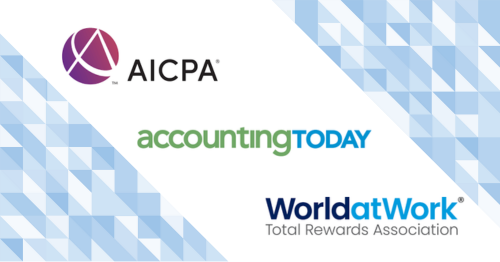
February 27, 2025
CSG Partners Staff
In recent media appearances, CSG's advisors shared valuable insights on the evolving landscape of employee stock ownership plans and their impact on firm ownership and succession strategies. From podcasts to articles, these discussions noted the multifaceted benefits of ESOPs for business owners, future leaders, and rank-and-file staff.
This winter's coverage included a focus on employee ownership transactions for accounting firms. AICPA and Accounting Today highlighted rising industry-wide interest in ESOPs as private equity alternatives while featuring CSG's unique perspective on evaluating and building these succession strategies.
AICPA Transforming Podcast Interviews Michael Bannon
ESOP Insights: Unlocking the Future of Firm Ownership
"First, let's consider an ESOP strategy from a partner's perspective. When you set up a leveraged ESOP, you're selling equity in an accounting firm to an employee stock ownership trust. The beneficiaries of that trust are all eligible employees within your firm. So, it represents a liquidity strategy for senior or retiring partners."
"For future leaders, it's a succession plan. In general, ESOP participants earn equity in the firm over the course of their careers. Most accounting industry transactions also create a very large synthetic equity pool for young and rising partners. That effectively represents a hybrid ESOP-management buyout type structure."
"Finally, for rank-and-file staff, it's a retirement benefit. They receive, at no cost to themselves, stock in the firm. They have to vest into those shares, and they receive annual stock allocations over an extended period of time. Ultimately, it's a tax-deferred retirement benefit, tied to the stock performance of the firm."
Bannon's complete interview is available on AICPA.
Accounting Today Features Michael Bannon
The ESOP Alternative for Accountants
Private equity's run through the ranks of the accounting profession showed no signs of slowing in 2024. But recently, employee stock ownership plans have emerged as an alternative succession strategy for middle-market firms. Long viewed as a tax-advantaged transition tool for accountants' business clients, CPAs are now embracing ESOPs for their own firms.
Why? Because leveraged ESOPs circumvent deferred compensation dilemmas. At most firms, new partners must pull in revenue and generate profits to gradually pay departing partners. Paradoxically, departing partners are generally among a firm's biggest producers. As a result, a single ownership transfer period can last as long as 10 years and is often completed below fair market value.
ESOPs enable new accountants to earn equity without having to fund a deferred compensation arrangement and without having to pay out of pocket to buy in. Instead, an employee ownership transaction can provide for a seamless, rolling transition of ownership. Partial ESOP transactions are common, enabling firms to sell targeted blocks of retiring partner stock to an employee trust. But CPA firms can only unlock the utility of an ESOP when they fully tap into the relative flexibility of these strategies.
Bannon's full article is available on Accounting Today.
WorldatWork Quotes Andrew Nikolai
Might ESOP Benefits Put the Success in Succession?
Research by CSG Partners found that, between 2020 and 2022, there were 299 net-new leveraged ESOPs, the largest expansion period in two decades—with middle-market companies appearing to drive the growth.
"There’s more ESOP education and awareness out there," said Andrew Nikolai, CFA, a Vice President at CSG Partners. "Historically, and even still today, we talk to a business owner about an ESOP, and a lot of times we get the response, 'This is great. Why did I not know about this? Why are more people not talking about this?'"
"Offering current and potential employees an ownership stake in the company can be a powerful attraction and retention tool that makes businesses stand out," Nikolai said. He also adds, "An ESOP will likely work best in a company that embraces an ownership culture that incentivizes workers to work toward company growth."
"You can turn people making $50,000 a year into millionaires over time... this can be a really powerful tool to create employee wealth."
The complete article is available on WorldatWork.
The Value of Valuation Podcast Interviews Andrew Nikolai and Patrick Trask
The Key Advantages and Trends of ESOPs
Nikolai: "40% of businesses reach a second generation, and only 13% reach a third generation. More and more companies are not passed down to the owners' kids or grandkids. They want to do something else. So, it's really important to take a proactive approach when you're thinking about succession strategies."
Trask: "An ESOP is a fantastic operating model for a management buyout. Those managers typically don't have the means to purchase a business, but they absolutely have the capability and desire to run it. The ESOP provides liquidity for an outgoing owner and value proposition for the management team to be an equity participant."
The full episode is available on Lakelet Advisory Group.